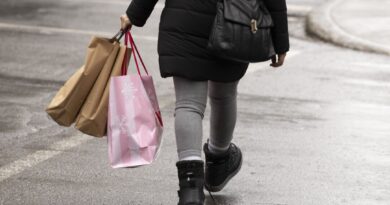As Labor Tightens the Purse Strings, Cost of Living Comes into Focus
Voters are calling for more actions to address the increasing cost of living with a federal election approaching as Labor emphasizes responsible economic management.
The federal election is looming as a battle over cost-of-living, but both major parties have not yet offered significant financial incentives to attract voters.
With Australians set to vote by May 17, Anthony Albanese has kicked off the year by reaching out to voters in marginal electorates across various states.
Their choice may come down to whether they feel financially better off than when Labor took office in May 2022.
Shadow treasurer Angus Taylor suggested that the average Australian is now $8000 (US$4950) worse off than 18 months ago.
However, the prime minister noted that the opposition did not back its $300 (US$185) energy bill rebate for households and has yet to reveal a cost-of-living plan.
“Not one,” he told reporters at the Midland urgent care clinic in Perth, his 27th visit to Western Australia (WA) as prime minister.
After traveling through Queensland and the Northern Territory (NT), Albanese announced $200 million (US$124 million) for housing and community infrastructure for WA and three additional ports for importing and exporting goods in regional parts of the state.
WA played a critical role in Labor’s 2022 election victory, and the party will seek to maintain its position and gain support in a few highly contested electorates.
Politicians typically return to work after the Jan. 26 public holiday, so the prime minister’s whirlwind tour signals an unusually early start to the political agenda.
The opposition leader has been relatively quiet since the beginning of 2025, but reports suggest Peter Dutton will launch his unofficial campaign on Jan. 12.
The prime minister has not disclosed when he will announce the election date.
“I can confirm that I am not revealing the election date today,” he stated.
The increasing cost of living remains a primary concern for many Australians, and while the government will take action, Treasurer Jim Chalmers insists on responsible management.
“People should not expect this election to be a massive spending spree or a big cash giveaway,” he mentioned on Jan. 9.
“We must maintain responsible budgeting, but we will consider additional measures to assist people with the pressure of living costs if possible.”
Australians are showing growing dissatisfaction with the major parties, with polls indicating that neither Labor nor the coalition will secure a majority government.
This presents an opportunity for minor parties and independents to have an impact in the upcoming term.
“This election is crucial for Australia’s future and our global role,” Greens senator Sarah Hanson-Young stated in an interview with the ABC.
“Whether it’s Anthony Albanese or Peter Dutton, we will hold them accountable and reassure the Australian public that harmful policies will not be passed.”
Albanese has already announced significant spending for local community facilities and infrastructure in northern Queensland, where the Labor party aims to win the seat of Leichhardt currently held by retiring Liberal MP Warren Entsch.
Albanese also highlighted the economic benefits of China lifting its ban on Australian beef exports during a visit to an NT cattle station on Jan. 8.





